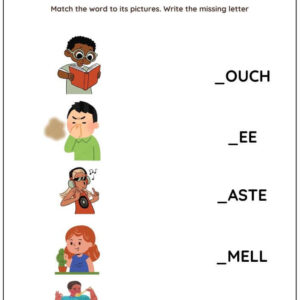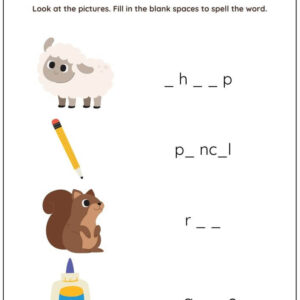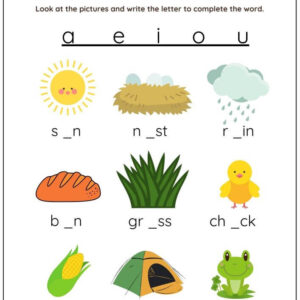Description
I’ll never forget when a student realized that “massive” is the opposite of “tiny.” It turned vocabulary into a fun puzzle, helping kids see how opposites bring language to life.
Why Learning Antonyms is a Secret Superpower for Young Readers
Matching opposites builds a strong foundation for all language skills.
- Doubles Vocabulary: Learn one word and instantly know its opposite.
- Improves Descriptive Writing: Antonyms add contrast and detail, turning “The dog is big” into “The dog was enormous, not small.”
What Makes Our Antonym Match Worksheet Different?
This worksheet is more than a simple activity—it’s a full learning tool.
- Curated Word Pairs: From simple (hot/cold) to challenging (arrive/depart), carefully chosen for young learners.
- Clean, Focused Layout: Two columns make it easy to focus on meaning without distractions.
- Answer Key Included: Parents and teachers can quickly check work, supporting independent learning.
3 Simple Ways to Turn This Worksheet into a Language Lesson
- Act It Out: Show a strong pose, then a weak pose. Moving makes words stick.
- Connect to Their World: After matching “clean” and “dirty,” ask, “What in your room is clean? What makes it dirty?”
Ready to Make Vocabulary Building an Engaging Game?
This worksheet makes learning opposites structured, fun, and effective. It’s low-prep but high-impact, helping kids discover word relationships with ease.
(Call to Action – Human-Written)
Click ‘Add to Cart’ to download your Match Antonyms Worksheet instantly. Get a printable PDF with the worksheet and answer key to spark vocabulary lightbulb moments in your home or classroom.






Reviews
There are no reviews yet.